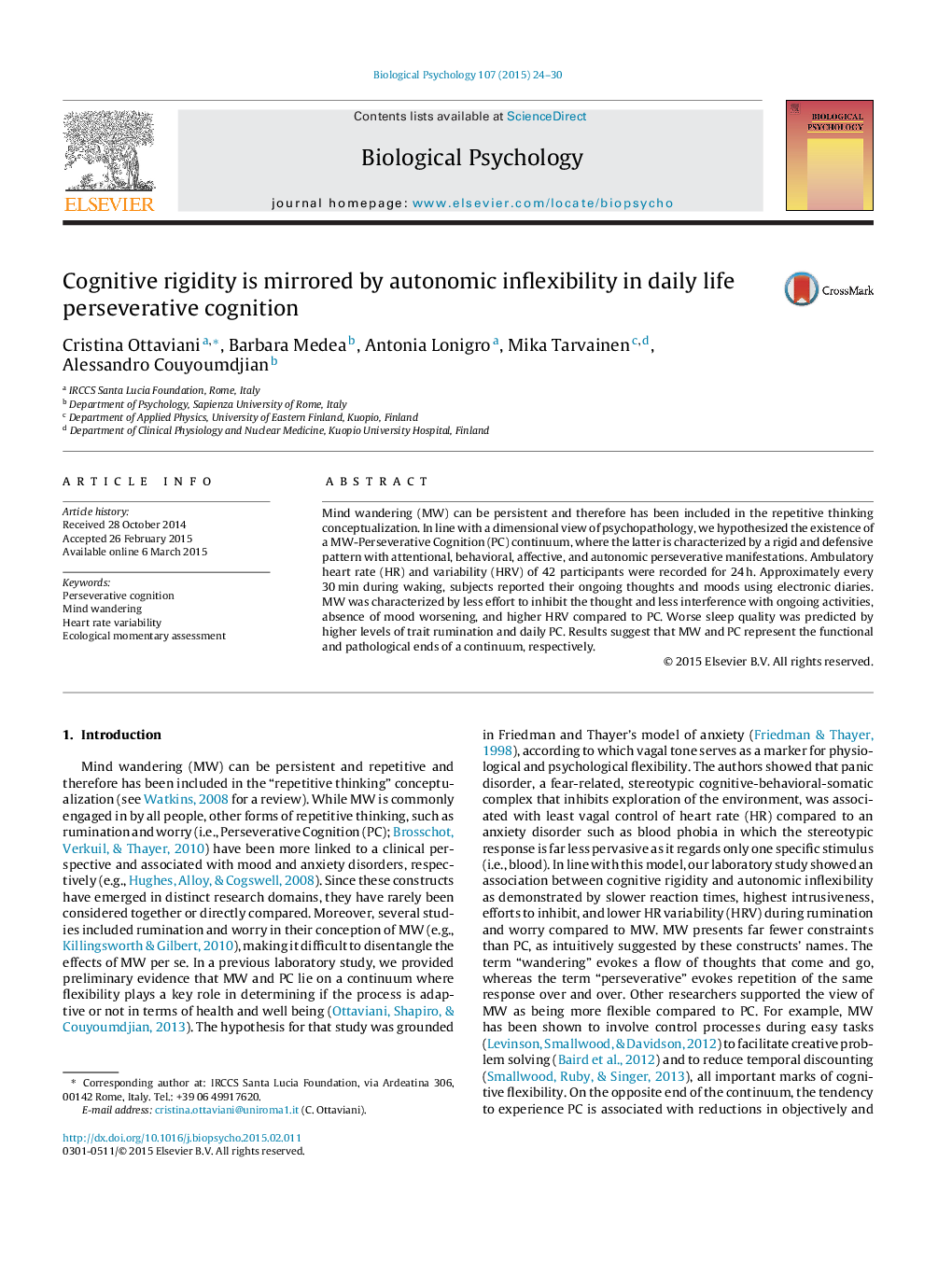| Article ID | Journal | Published Year | Pages | File Type |
|---|---|---|---|---|
| 920859 | Biological Psychology | 2015 | 7 Pages |
•Perseverative cognition was characterized by cognitive and autonomic rigidity.•Perseverative cognition was associated with lower HRV compared to mind wandering.•Perseverative cognition – but not mind wandering – was associated with mood worsening.•High trait worry and rumination were related to higher HR and lower HRV during wake.•Trait rumination and daily perseverative cognition predicted quality of sleep.
Mind wandering (MW) can be persistent and therefore has been included in the repetitive thinking conceptualization. In line with a dimensional view of psychopathology, we hypothesized the existence of a MW-Perseverative Cognition (PC) continuum, where the latter is characterized by a rigid and defensive pattern with attentional, behavioral, affective, and autonomic perseverative manifestations. Ambulatory heart rate (HR) and variability (HRV) of 42 participants were recorded for 24 h. Approximately every 30 min during waking, subjects reported their ongoing thoughts and moods using electronic diaries. MW was characterized by less effort to inhibit the thought and less interference with ongoing activities, absence of mood worsening, and higher HRV compared to PC. Worse sleep quality was predicted by higher levels of trait rumination and daily PC. Results suggest that MW and PC represent the functional and pathological ends of a continuum, respectively.
